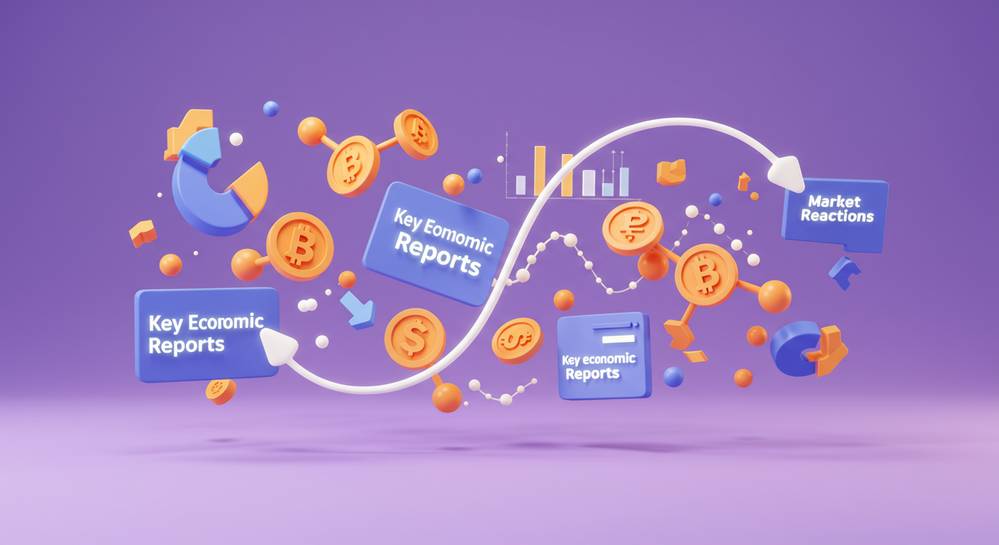In today’s interconnected global landscape, staying informed about stock market economy news is crucial for investors, businesses, and everyday citizens alike. These daily updates and analyses shape financial decisions, influence policy-making, and often dictate the direction of personal wealth. Understanding how economic indicators, corporate earnings, and geopolitical events converge to affect market sentiment can empower you to make more informed choices, whether you are managing investments or simply observing the financial tides. This guide delves into the essence of this vital information.
What Constitutes Stock Market Economy News?

Stock market economy news comprises diverse information influencing publicly traded companies and the broader economic landscape. It includes reports, analyses, and announcements from financial markets and global economic conditions. Markets are forward-looking, constantly processing new data to predict future performance and assign current valuations, making this news critical for investors.
Key Categories of Market-Moving News
- Corporate Earnings Reports: These quarterly or annual disclosures detail a company’s financial health, including revenue, profits, and future outlook. Strong results typically boost stock prices, while disappointments can trigger sell-offs.
- Macroeconomic Data: Government and private sector reports, like Gross Domestic Product (GDP), inflation rates (Consumer Price Index – CPI), and employment figures, offer a snapshot of national economic health. These economic indicators are vital for understanding market sentiment.
- Central Bank Policies: Decisions by central banks, such as the Federal Reserve, on interest rates and monetary policy significantly impact borrowing costs, corporate investments, and currency values. These actions shape the financial environment.
- Geopolitical Events and Technological Shifts: International relations, trade agreements, and major global events create market uncertainty or opportunities. Furthermore, rapid advancements in areas like undefined increasingly drive sector-specific and broader economic news.
The Interplay Between Economic Indicators and Stock Performance
Stock market performance links deeply to economic indicators. Investors analyze this crucial stock market economy news to gauge economic health. A robust economy typically means higher corporate profits and consumer spending, boosting valuations.
Interest Rates and Market Dynamics
Central bank interest rate decisions shape market dynamics. Lower rates reduce business borrowing costs, encouraging investment and expansion, often boosting stock prices. Higher rates make borrowing expensive, slowing growth and favoring fixed-income assets.
Inflation and Corporate Profitability
Inflation, the rate of rising prices, critically influences stock market economy news. Moderate inflation suggests a healthy economy. High inflation, however, erodes purchasing power and increases business costs, prompting central banks to raise rates, negatively affecting profits.
Employment Data and Confidence
Employment figures, like jobless claims and unemployment rates, are closely watched. They reflect consumer confidence and spending capacity, vital for economic strength. A strong job market fuels consumer spending and corporate revenues. Rising unemployment signals an economic slowdown.
Key Economic Reports and Their Market Reactions

Monitoring specific economic reports is crucial for anyone tracking stock market economy news. These scheduled releases provide critical data points. They often trigger immediate market reactions as investors adjust positions based on new information.
Market Reactions to Key Economic Data
- Gross Domestic Product (GDP): This broad measure of economic activity signals national health. Higher-than-expected GDP growth generally boosts market sentiment, indicating robust expansion.
- Consumer Price Index (CPI): CPI tracks consumer inflation. An unexpected rise suggests inflationary pressures, potentially leading to interest rate hike fears and negative market reactions.
- Purchasing Managers Index (PMI): PMI surveys gauge manufacturing and service sector health. Readings above 50 indicate expansion; below 50 suggests contraction. Strong PMI numbers often boost market confidence.
- Retail Sales: This report measures consumer spending, a key economic driver. Strong retail sales reassure investors about demand, positively impacting the stock market.
- Non-Farm Payrolls (NFP): Monthly NFP reports new jobs created in the US (non-agricultural). Strong NFP numbers signal a healthy labor market, generally positive for economic outlook and investor confidence.
Strategies for Interpreting and Utilizing Stock Market Economy News

Effectively interpreting stock market economy news transcends mere headline scanning. It demands understanding context, discerning trends, and applying a critical lens to information. Given the daily volume of financial reports, a strategic approach is vital for informed decisions and avoiding impulsive reactions.
Adopt a Long-Term Perspective
While short-term market reactions to stock market economy news can be dramatic, seasoned investors prioritize long-term implications. Differentiate between temporary market noise and fundamental economic shifts. Significant news, like central bank policy changes or major technological breakthroughs, typically has more lasting effects than daily fluctuations.
Diversify Your Information Sources
Relying on a single source can lead to a biased or incomplete view. Seek reputable financial news outlets, government economic reports, and diverse expert analyses for a well-rounded perspective. Cross-referencing information helps validate data and identify potential discrepancies in the ever-evolving stock market economy news landscape.
Understand the Lag Effect
Economic data often reflects past performance, yet markets are inherently forward-looking. Analyze how current news might influence future economic conditions and corporate earnings, rather than simply reacting to present data. Predicting market movements often involves understanding expectations; a seemingly good report could trigger a sell-off if it falls short of even higher anticipations.
Connect the Dots Systematically
News rarely occurs in isolation. A rise in oil prices, for instance, impacts transportation costs, consumer spending, and inflation rates. Learning to connect seemingly disparate news items into a coherent narrative about the broader economy is an invaluable skill for any market participant navigating stock market economy news.
Navigating the complex currents of stock market economy news requires a blend of vigilance, analytical skill, and a commitment to continuous learning. By understanding the interplay between economic indicators, corporate actions, and global events, you can develop a more robust framework for interpreting market movements. Informed decision-making, rather than reactive responses, is the cornerstone of successful engagement with financial markets. Stay ahead of the curve and deepen your financial understanding with expert analysis from Global Affairs News.
